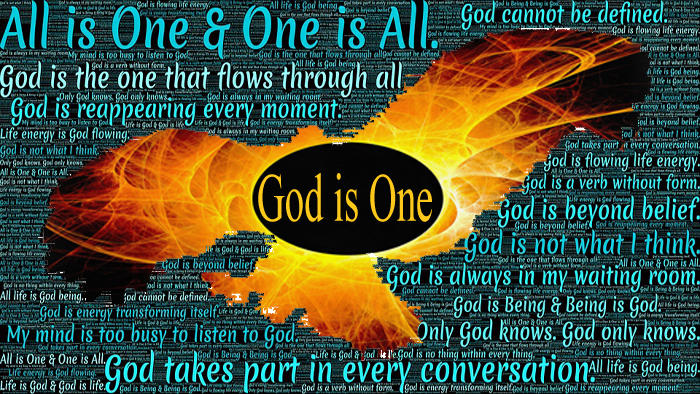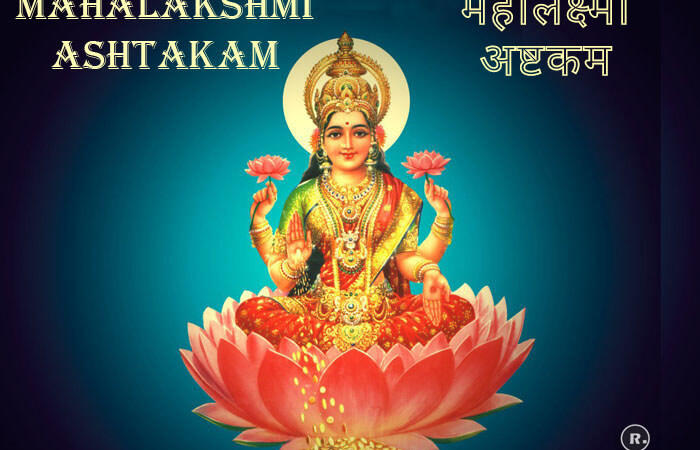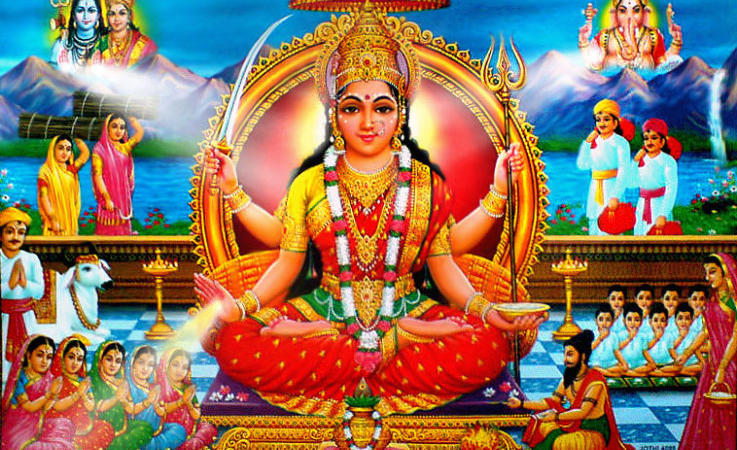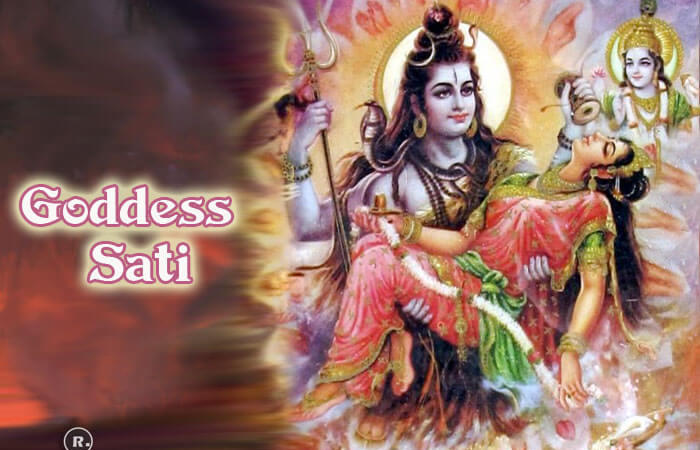One God With Many Names

“God is one. Men call Him by various names“, is the eternal truth voiced by the Veda. It doesn’t matter what address you send your prayer to. Whether you mail it to Indra or Agni, God or Goddess, Allah or Buddha. Mary or Jehovah, your letter ends up in the same mailbox. The one God always gets your message, no matter what religion you belong to.
To use another metaphor: Christians say that to access the hard drive, you have to click on the Jesus icon. No other icon will let you access the hard drive. Muslims say it’s a spiritual crime to use any icons at all. Never confuse the hard drive with any of the silly icons on the desktop. Access the drive directly, with the code Mohammad provided.
Hindus say, hey, click on any icon. Every icon on the screen will connect you with the hard drive. Don’t see an icon you like? Make up a new one – it will work as well.
Divine being never turns away from any soul who turns to it with sincerity, no matter whether they call it Isis or Allah, Rama or Jesus.’ God says ‘To whatever god you direct your prayer, by whatever name you call the supreme, your prayer immediately comes to Me.’ If your prayer is sincere, it goes right to the heart of the universe and God responds.
Hinduism is a living lineage of enlightenment. It is very much an oral tradition, passed on from the spiritual teacher to the disciples, from the mother to the child. The Veda, the Bible of Hinduism, was transmitted by word of mouth for thousands of years before finally being committed to writing.
The Veda is the massive holy book of Hinduism. According to the Veda, it’s a serious mistake to confuse your name of God with the Supreme Being himself. If words like “Gods” or “Goddess” or “Supreme Reality” point you in the right direction, use them by all means.
The point is not to choose a name for God and then claim that anyone who calls God by a different name is going to hell. For Hindus, the point is to enter into a living relationship with the Supreme Being till you fell its breath in your breath, till you feel enveloped in the all-encompassing embrace of the infinite wisdom out of which this universe emerged.
According to Hinduism,, there are no false gods, at least not if that god is sincere. Whatever form of the divine you worship, even if it’s a man with an elephant head, the one all-pervading Being who loves you more than you can possibly imagine will use that form to guide you to Her. According to Yajur Veda, this universe is the outpouring of the majesty of God, the auspicious one, radiant love. Every face you see belongs to him. He is present in everyone without exception.
Jews and Muslims believe God is completely transcendent and has never appeared on Earth in human form. Christians believe God took a human birth once as Jesus Christ. Hindus believe that whenever humanity calls out to God and the Goddess for help, He and She appears here in physical form to guide and protect us.
We drink different same elements with different names in order to slake our thirst. They may call water with different names but water and thirst are the same. Similarly, God is called by various names but he is one, there is one non-dual supreme Universal Spirit. God is the great spirit we call Him Allah, call Him Ahura Mazda, call Him Almighty Father in Heaven, call Him what you will, It is the Great Spirit.
Islam, they say, “there is the Light of Allah in man.” In the Bhagavad Gita, Lord Krishna says, “I am the Soul seated in the hearts of all beings.” Christianity and Judaism say that God created man in His own image and breathed His spirit into him. Therefore, the spirit of God indwells man as the innermost reality in him.
Hindus believe in the formless Absolute Reality as God and also in God as personal Lord and Creator. This freedom makes the understanding of God in Hinduism, the oldest monotheistic religion. The Rig-Veda, the oldest existing scripture of mankind, points out that truth is one, and men call it by various names. Lord Krishna tells us in the ancient Bhagavad-Gita: “I am the source from which the gods come.”
The universe is all. Some call this God, but the word has entanglements: dominion, commandment, forgiveness, judgment, afterlife, even angels and devils, and other symbols that take on a reality of their own; they always have. Better to leave God out of it.
To be selfish or cruel or indifferent doesn’t reward us, God or no God. We are joyous, loving, truth-seeking animals. If no giver gives these gifts, does it matter? Call it God if you wish. You needn’t. Therefore, practice love and joy, and be thankful. This is a prayerful attitude, you say? It’s the pious atheist’s as-if. All will be renewed, without ourselves, without the need of God.






